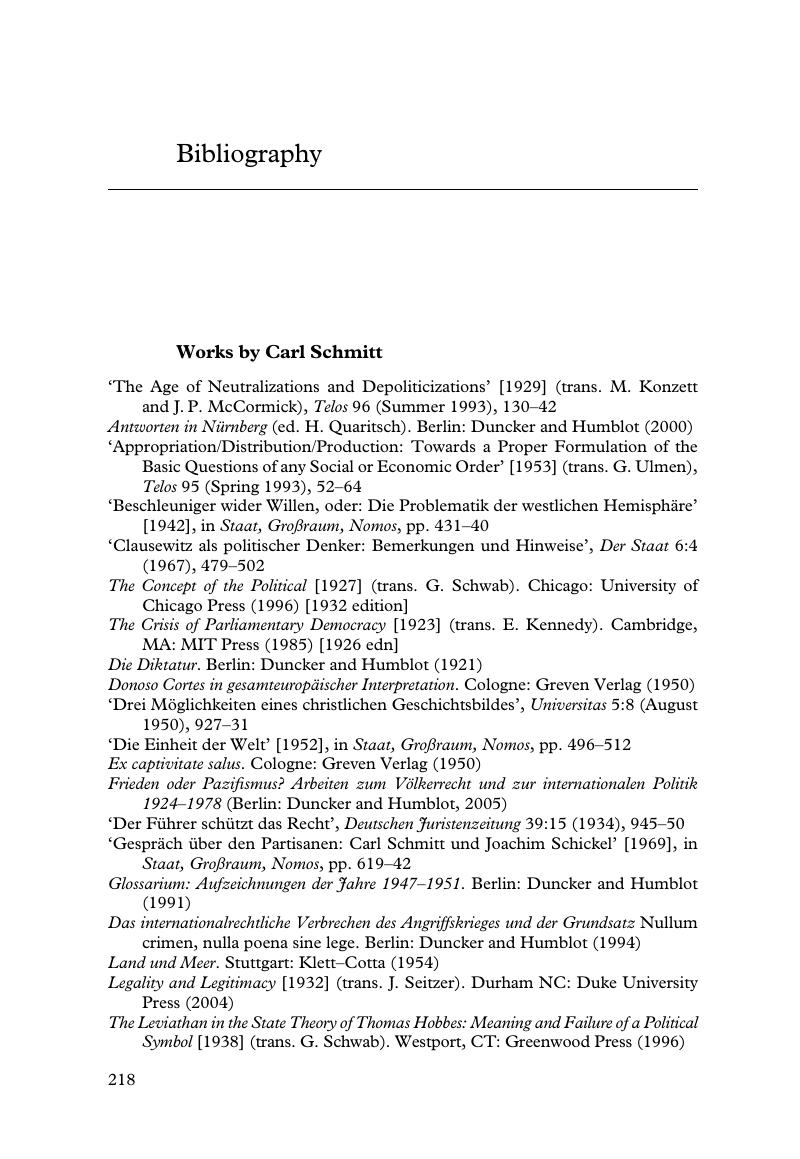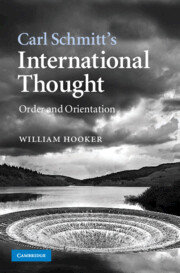Book contents
- Frontmatter
- Contents
- Preface
- Chronology of Schmitt's life
- 1 Introduction
- 2 Schmitt's ‘international thought’
- 3 Unravelling sovereignty
- 4 Histories of space
- 5 Acceleration and restraint
- 6 Großraum
- 7 Partisan
- 8 Conclusion
- Appendix. Carl Schmitt in international relations: a bibliographic essay
- Bibliography
- Index
- References
- Frontmatter
- Contents
- Preface
- Chronology of Schmitt's life
- 1 Introduction
- 2 Schmitt's ‘international thought’
- 3 Unravelling sovereignty
- 4 Histories of space
- 5 Acceleration and restraint
- 6 Großraum
- 7 Partisan
- 8 Conclusion
- Appendix. Carl Schmitt in international relations: a bibliographic essay
- Bibliography
- Index
- References
Summary

- Type
- Chapter
- Information
- Carl Schmitt's International ThoughtOrder and Orientation, pp. 218 - 226Publisher: Cambridge University PressPrint publication year: 2009



